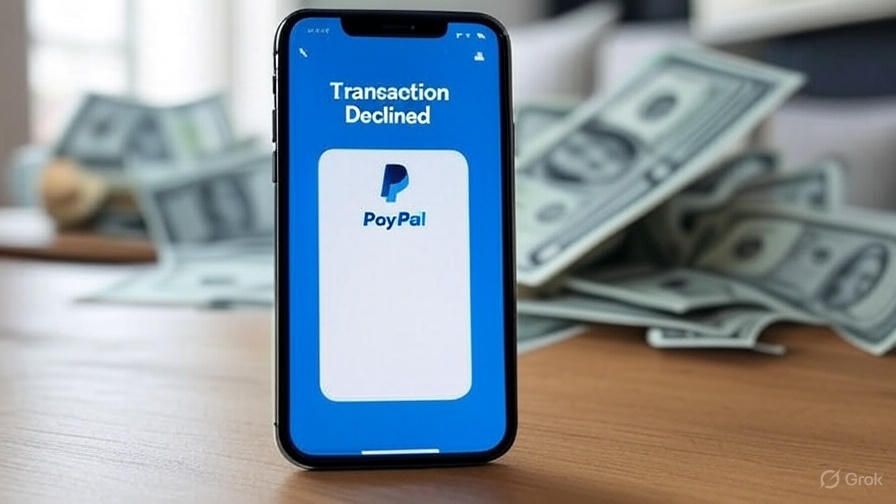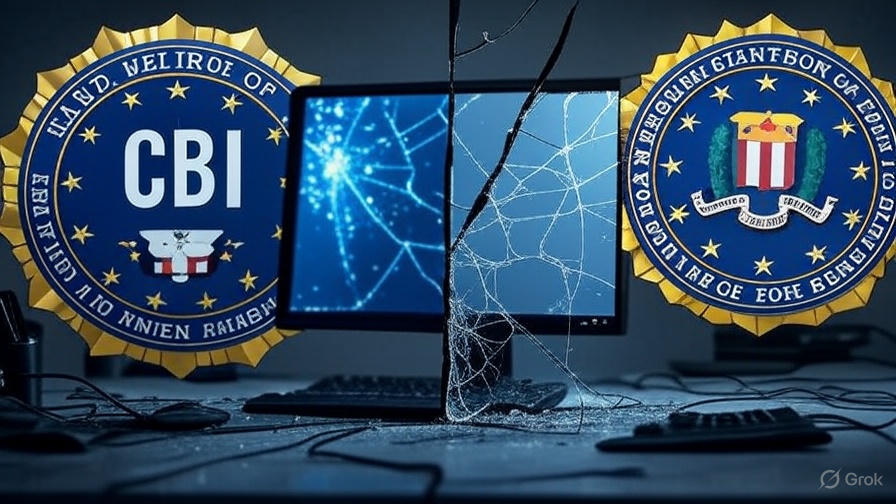PayPal Payments Stopped: 11 Billion Transactions Frozen in Massive Security Move By German Bank
PayPal payments stopped for a staggering 11 billion transactions as the company took unprecedented action against potential scams. This massive security intervention, one of the largest in digital payment history, represents PayPal’s aggressive response to growing fraud concerns across its global platform. The company confirmed these measures, stating they “quickly identified” suspicious patterns requiring immediate action.
According to reports from the Times of India, this decisive move prevented potentially billions of dollars in fraudulent transactions, protecting millions of users worldwide. The scale of this action highlights the increasing sophistication of online payment scams and the robust measures required to combat them.
Why PayPal Took Drastic Action
The decision to have PayPal payments stopped on such an enormous scale stems from the company’s advanced fraud detection systems identifying patterns consistent with organized scam operations. These patterns included:
- Suspicious transaction volumes from new accounts
- Unusual payment patterns inconsistent with user history
- Transactions linked to previously identified fraudulent entities
- Multiple accounts connected to single payment sources
PayPal’s security team explained that their artificial intelligence systems detected these anomalies in real-time, allowing for immediate intervention. “Our systems are designed to protect users proactively, even when it means temporarily halting legitimate transactions,” a company representative stated.
How PayPal’s Fraud Detection Works
PayPal employs sophisticated machine learning algorithms that analyze over 400 data points per transaction. This system constantly learns from global payment patterns, enabling it to identify potentially fraudulent activity with remarkable accuracy. When the system detects PayPal payments stopped protocols are automatically triggered, requiring additional verification or completely blocking transactions.
The company’s security infrastructure includes:
- Real-time behavioral analysis
- Device fingerprinting technology
- Geographic pattern recognition
- Cross-reference with global fraud databases
This multi-layered approach allows PayPal to identify and stop scams before they cause financial harm to users.
Impact on Genuine Users
While these security measures are crucial for preventing fraud, some legitimate users experienced temporary payment disruptions. Many reported transactions being held for additional verification, requiring them to confirm their identity or provide additional documentation.
Financial technology expert Dr. Sarah Chen explains: “This scale of intervention, while inconvenient for some users, represents the necessary evolution of digital payment security. The alternative—allowing billions in fraudulent transactions—would ultimately harm consumer confidence in digital payments overall.”
PayPal has established appeal processes for users who believe their legitimate transactions were incorrectly flagged. The company recommends keeping verification documents readily available and maintaining updated account information to minimize disruption.
The Rising Threat of Payment Scams
The need for such drastic measures reflects the alarming growth in digital payment scams. According to the Federal Trade Commission, reported losses to payment app scams reached $1.8 billion in 2023, a 300% increase from 2020. Common scams include:
- Phishing attacks mimicking PayPal communications
- Fake buyer/seller schemes on marketplace platforms
- Advance-fee fraud promising large returns for small payments
- Account takeover attempts using stolen credentials
These sophisticated operations often use social engineering tactics to bypass traditional security measures, making advanced AI detection systems essential.
User Protection Recommendations
To avoid having legitimate PayPal payments stopped, users should:
- Enable two-factor authentication for all transactions
- Keep contact information updated in their PayPal account
- Use strong, unique passwords different from other services
- Verify recipient information before sending payments
- Regularly monitor account activity for suspicious transactions
- Avoid clicking links in unsolicited emails claiming to be from PayPal
PayPal also recommends using their Goods and Services payment option for purchases, which provides additional buyer protection compared to Friends and Family transfers.
The Future of Digital Payment Security
This massive security intervention signals a new era in digital payment protection. As financial technology evolves, companies are implementing increasingly sophisticated measures including:
- Biometric verification using facial recognition and fingerprints
- Blockchain technology for transaction transparency
- Enhanced AI systems that learn from each prevented fraud attempt
- Global cooperation between payment providers to share threat intelligence
These advancements aim to create a security infrastructure that stops fraud while minimizing disruption to legitimate users.
Conclusion: Security Over Convenience
The unprecedented scale of PayPal payments stopped—11 billion transactions—demonstrates the company’s commitment to user protection above all else. While some legitimate users may experience temporary inconvenience, these measures prevent far greater harm from sophisticated scam operations.
As digital payments continue to grow, users should expect increasingly robust security measures. By understanding these protections and maintaining good security practices, consumers can confidently participate in the digital economy while staying protected from evolving threats.
PayPal’s action sets a new standard for payment security, showing that when it comes to protecting users, companies are willing to take dramatic steps to prevent financial harm.




